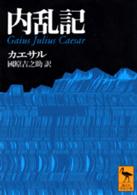基本説明
Examines the indigenous people discovered in Brazil in 1884, drawing from written and oral history, ethnography and archaeology.
Full Description
In 1884 a community of Brazilians was "discovered" by the Western world. The Ecology of Power examines these indigenous people from the Upper Xingu region, a group who even today are one of the strongest examples of long-term cultural continuity. Drawing upon written and oral history, ethnography, and archaeology, Heckenberger addresses the difficult issues facing anthropologists today as they "uncover" the muted voices of indigenous peoples and provides a fascinating portrait of a unique community of people who have in a way become living cultural artifacts.
Contents
Preface Kuikuru Orthography List of Figures List of Tables 1. Introduction Part I: Deep Temporality 2. Culture and History: The Longue Duree 3. The Ancient Regime 4. Colonialism and Ethnogenesis Part II: Power, Place, and Personhood 5. Landscape and Livelihood: Ethos of Settled Life 6. In the Midst of Others: Society, Ritual, and Chiefly Politics 7. The Pedigree of a Contradiction: Body and State in Amazonia 8. Conclusion: Temporality, Perspective, and Personhood in Amazonian Ethnology Notes Bibliography Glossar y of Indigenous Terms Index


















